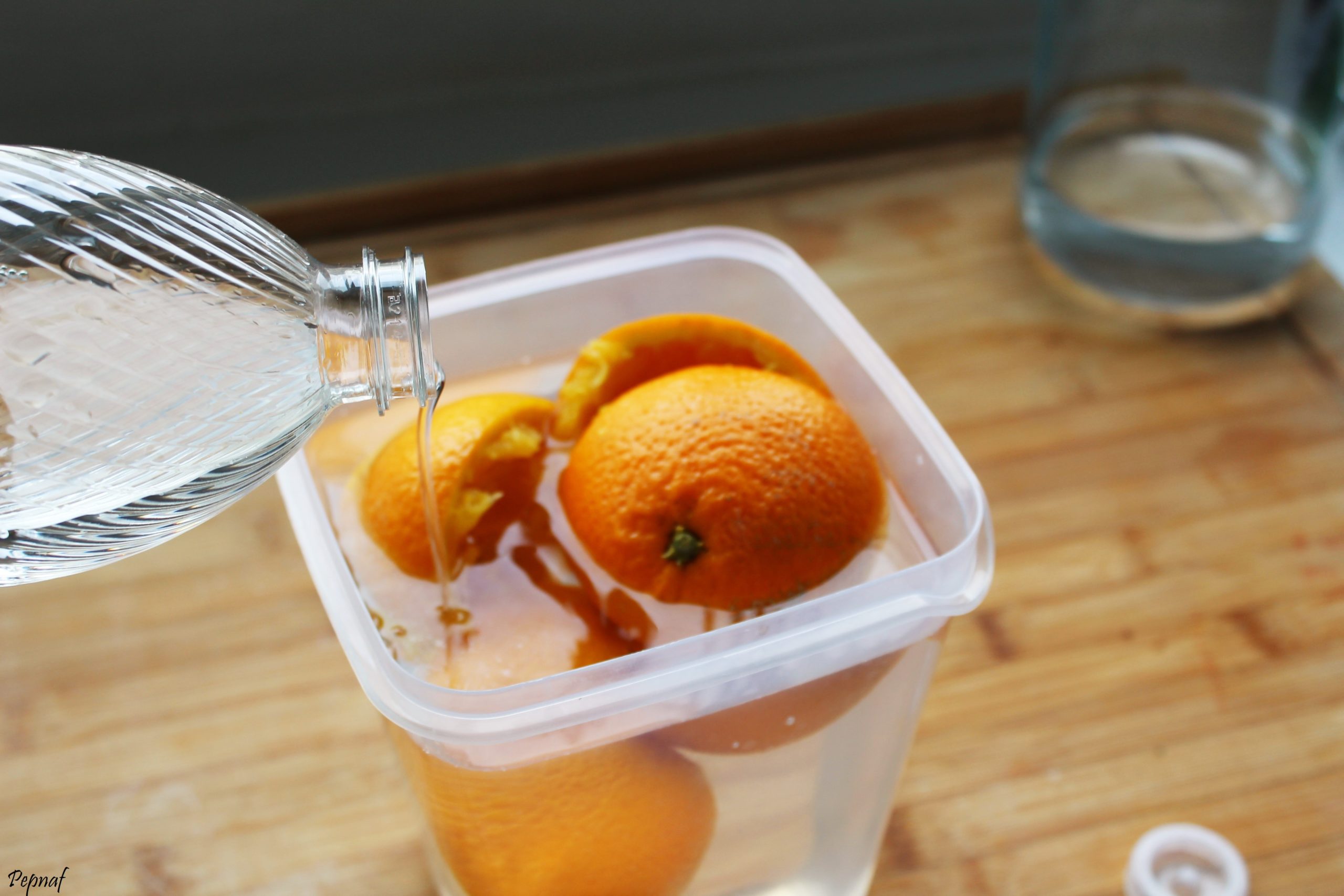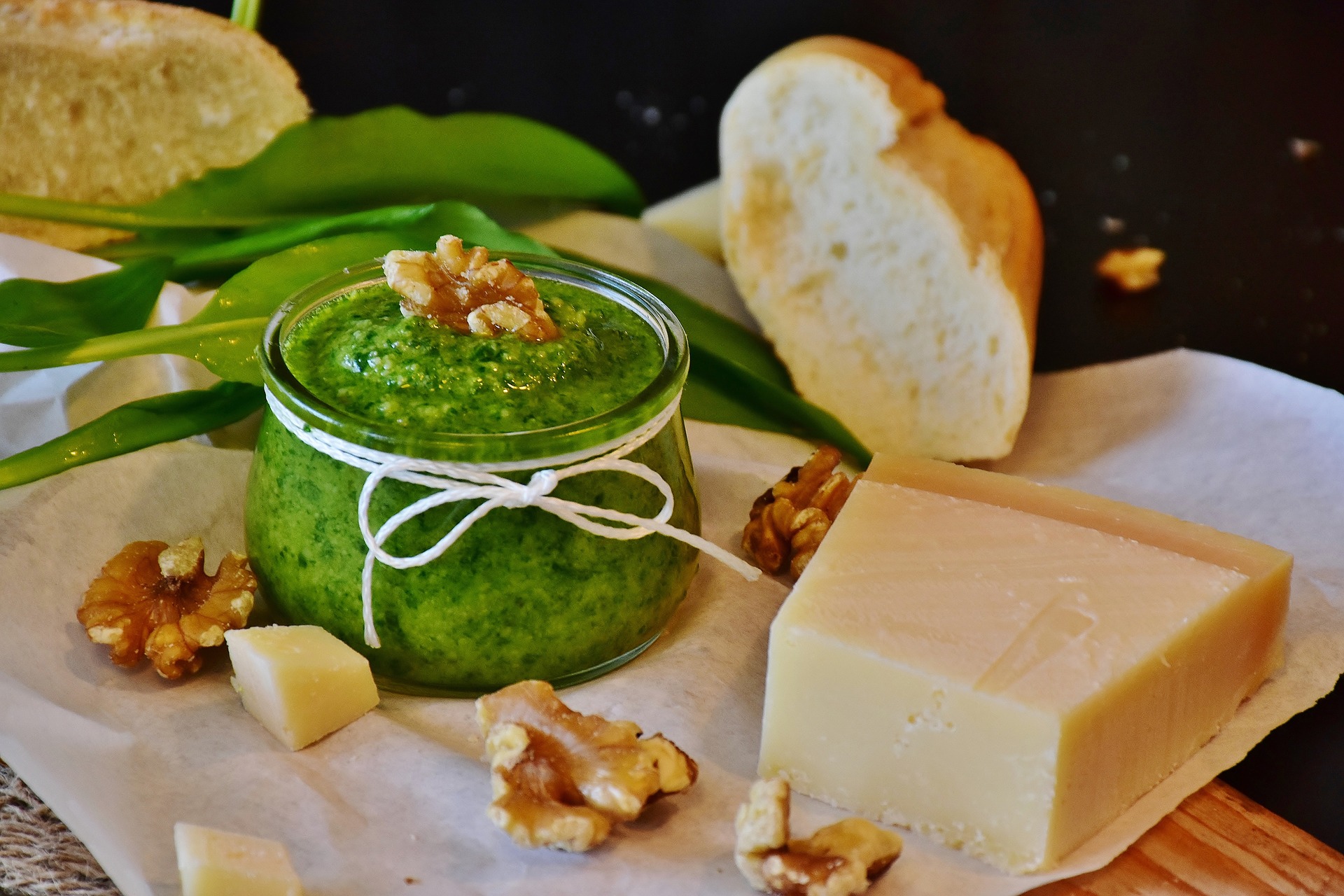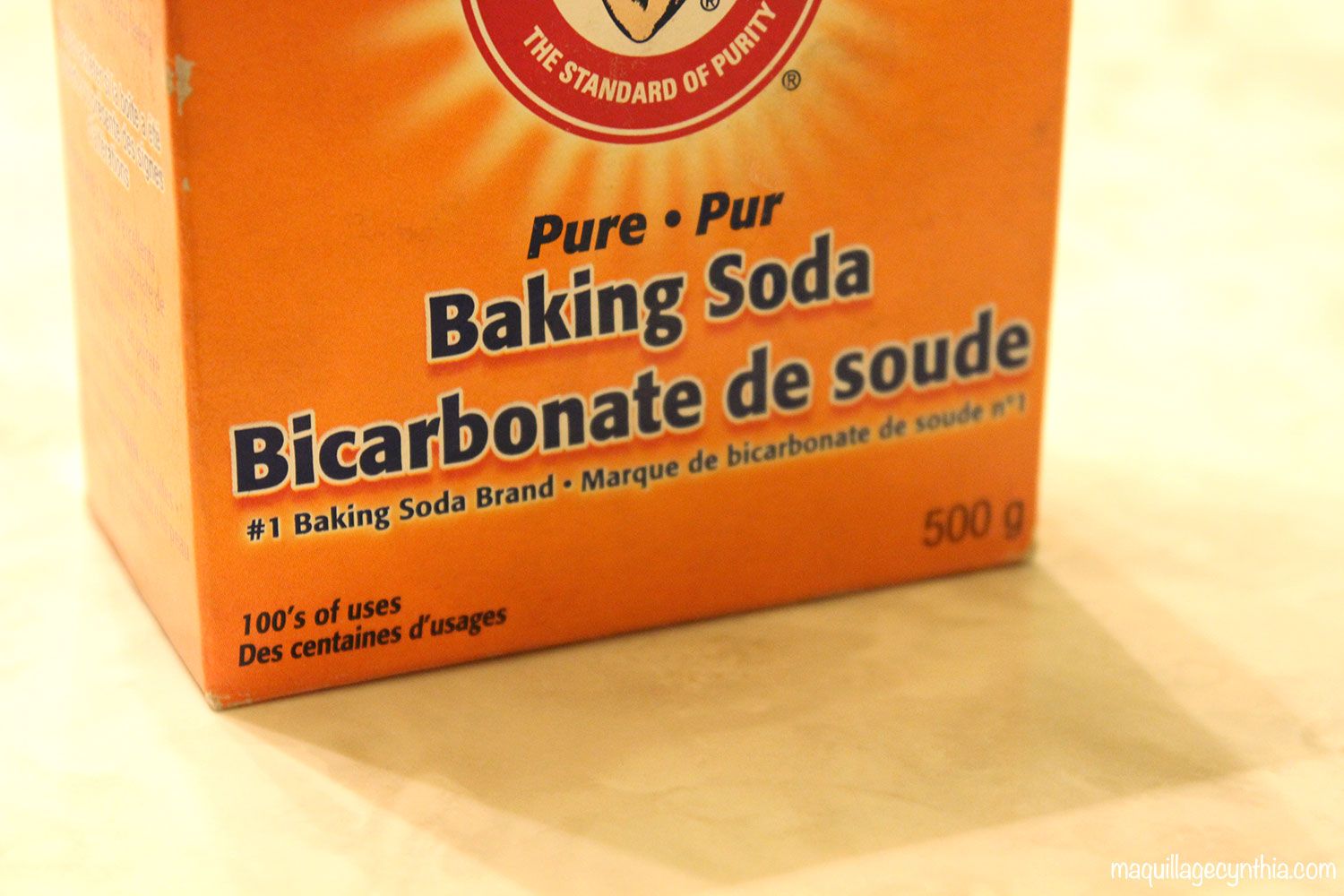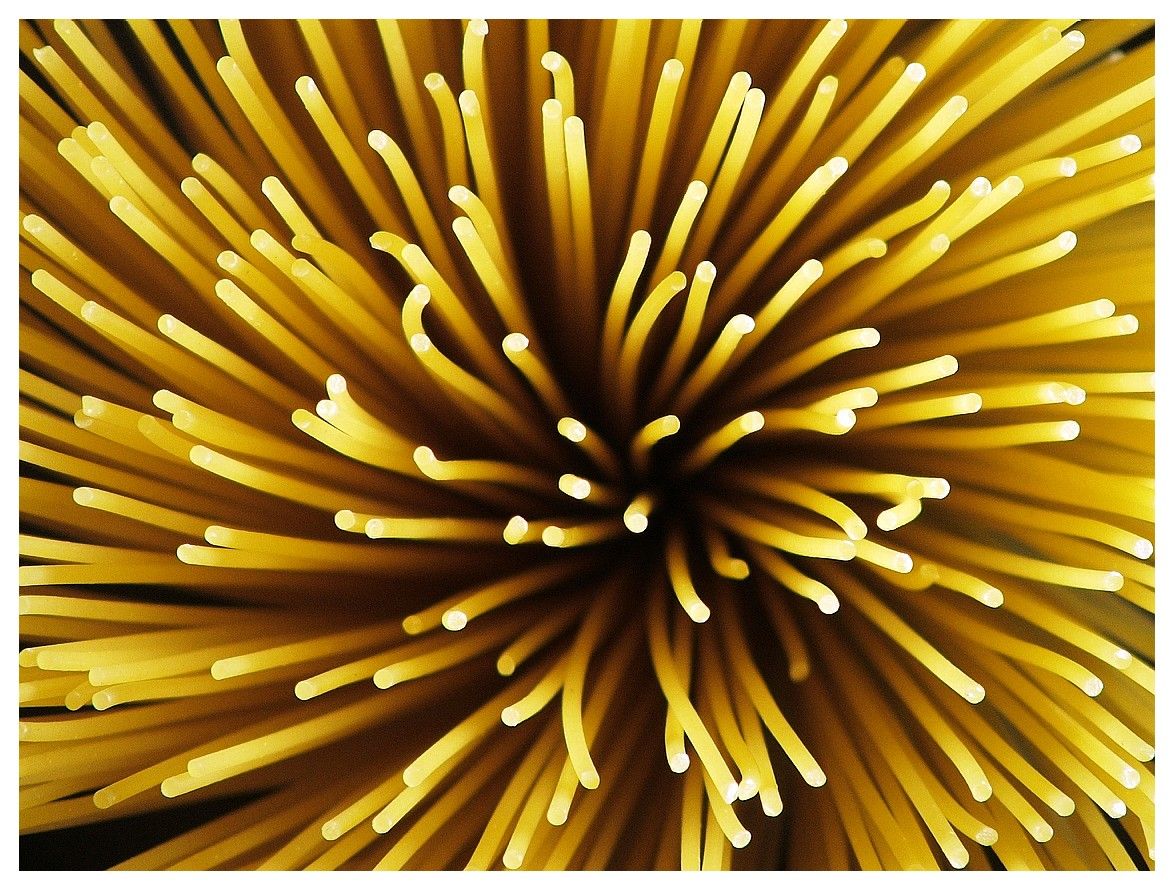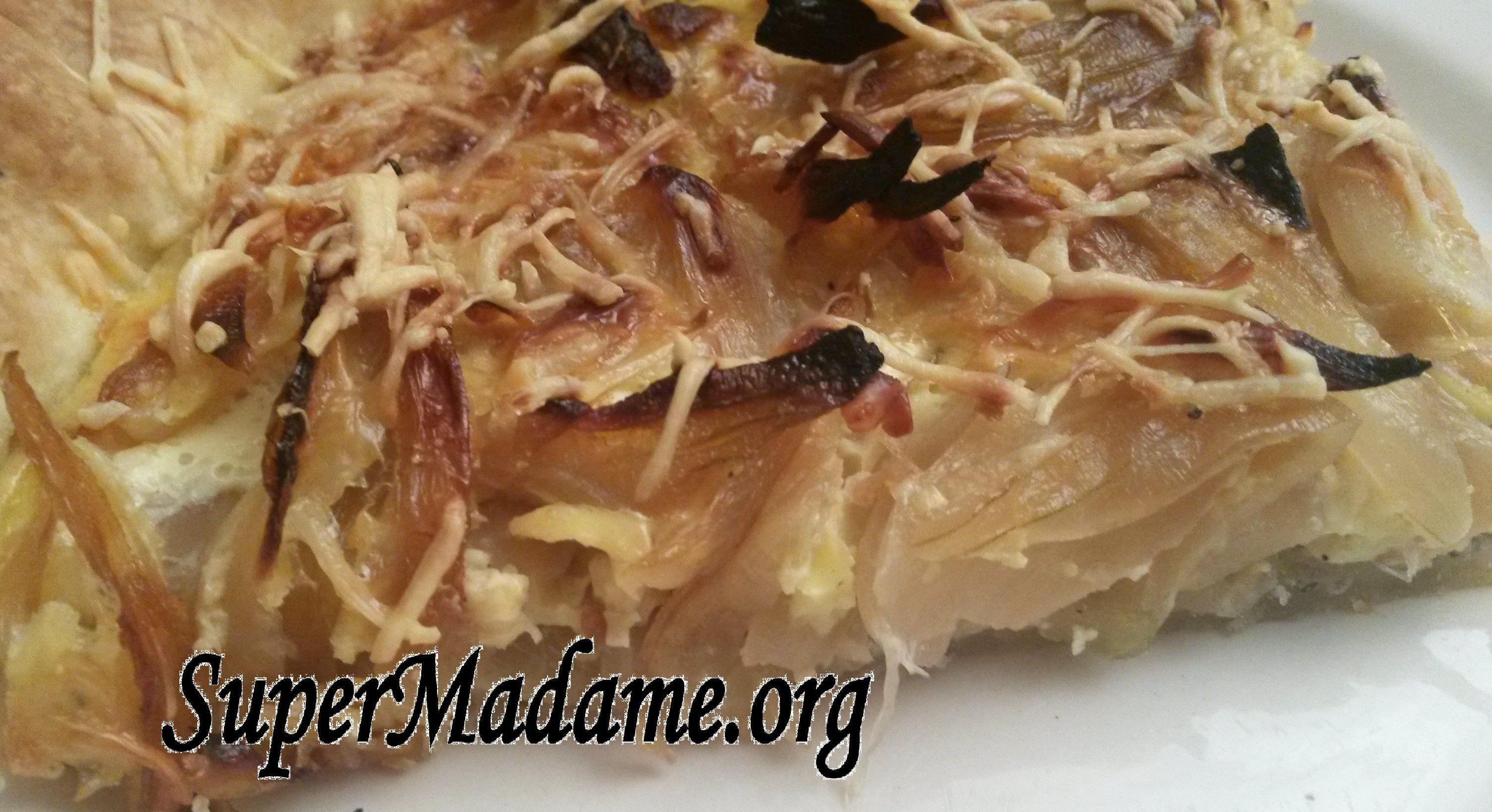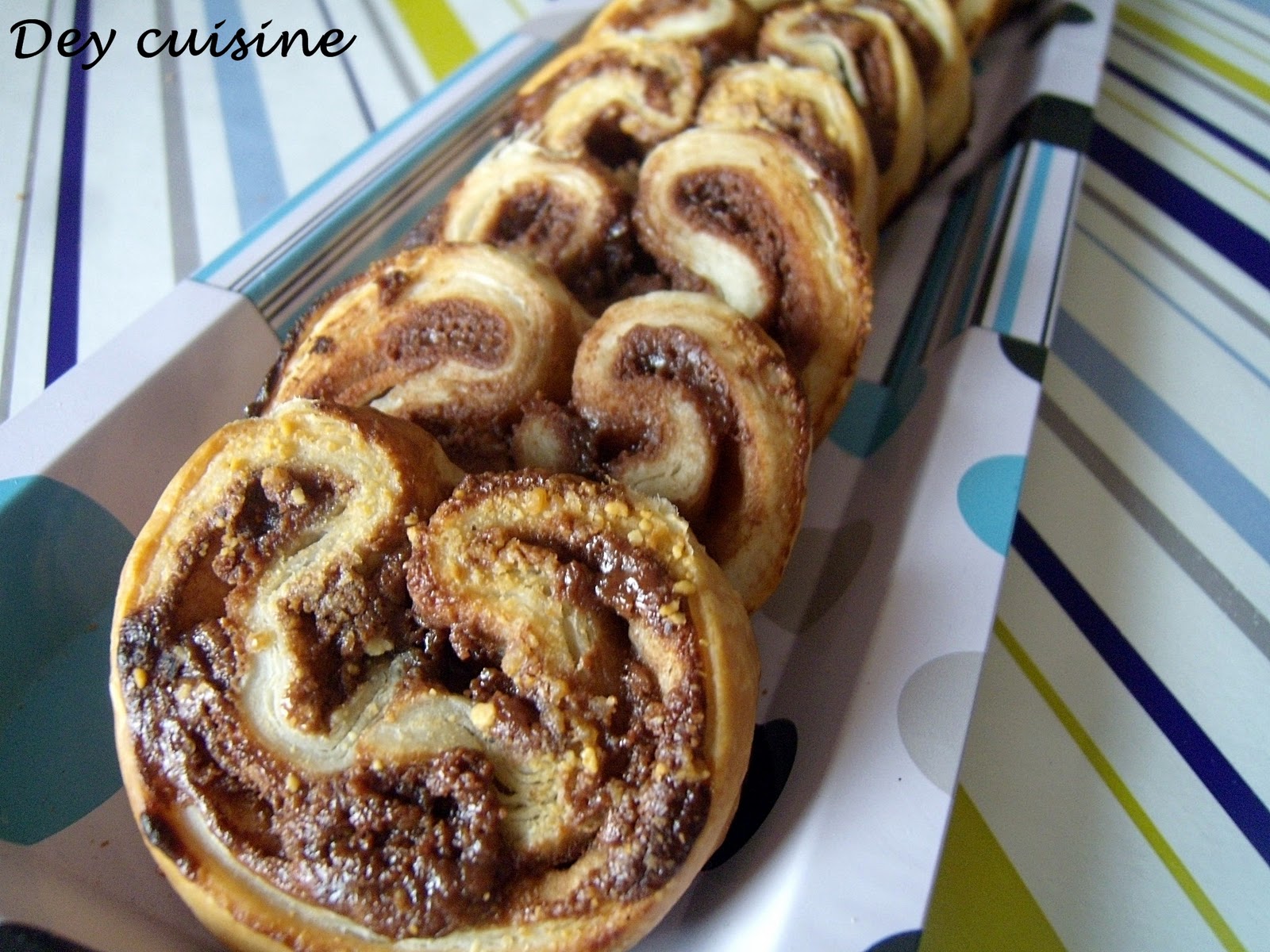26 Easy-to-Grow Plants to Make Your Own Herbal Teas.
Do you like homemade herbal teas and infusions?
So, why not grow your herbal tea plants in the garden?
We often think of growing aromatic herbs, but more rarely plants for herbal teas!
However, growing plants for herbal teas is a simple and natural way to create your own blends.
And it is not only practical, but it is also the guarantee of having herbal teas without pesticides or herbicides.
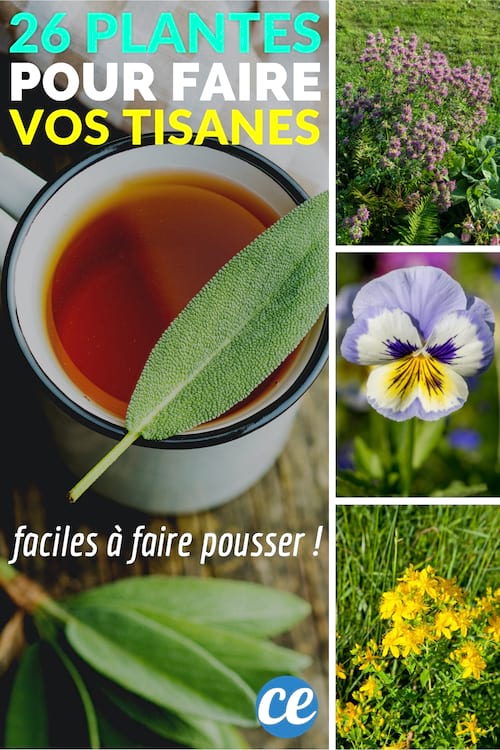
Not to mention that it is much more economical than buying a box of Lipton or Elephant infusions!
Here is the list of 26 plants that are easy to grow in your garden to make delicious herbal teas and infusions. Look :
1. Lavender
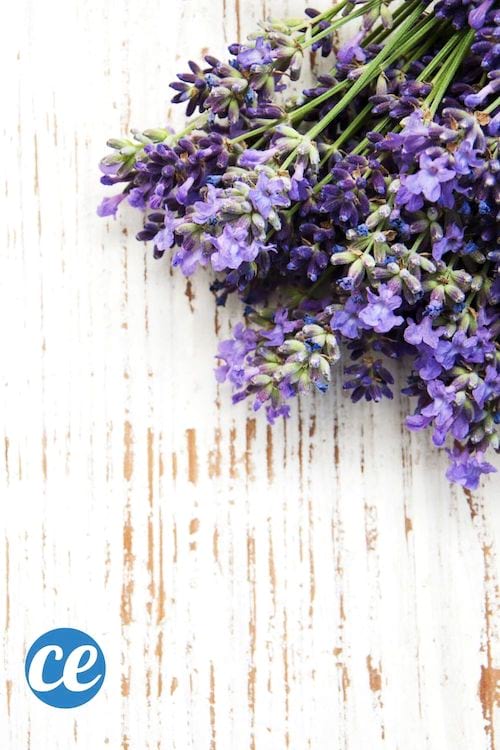
You might never have thought of making a lavender tea, but its floral taste is amazing.
A delicious cup of lavender flower herbal tea, with a sweet and fragrant taste, is perfect to soothe you.
And it's especially recommended for reducing blood pressure and relieving headaches.
Lavender grows well in full sun, in well-drained soil.
To discover : The 6 Amazing Uses of Lavender.
2. Lemon verbena
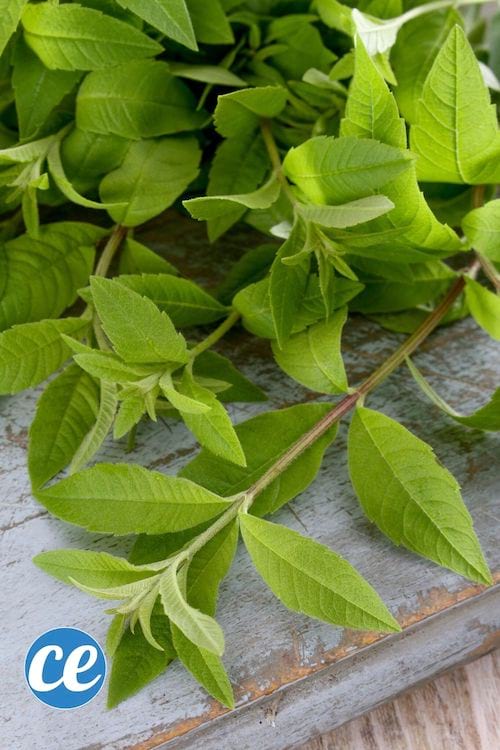
Lemon verbena leaves are used to make herbal teas.
They improve digestion, joint pain and help fight asthma.
Refreshing and sour, this lemon-flavored plant is easy to grow.
She needs a lot of sun to thrive and does not tolerate harsh winters. Below -10 ° C, the plant dies.
It is therefore more suitable for subtropical and tropical climates. But you can still grow it in pots that you put away from the cold.
3. Mint
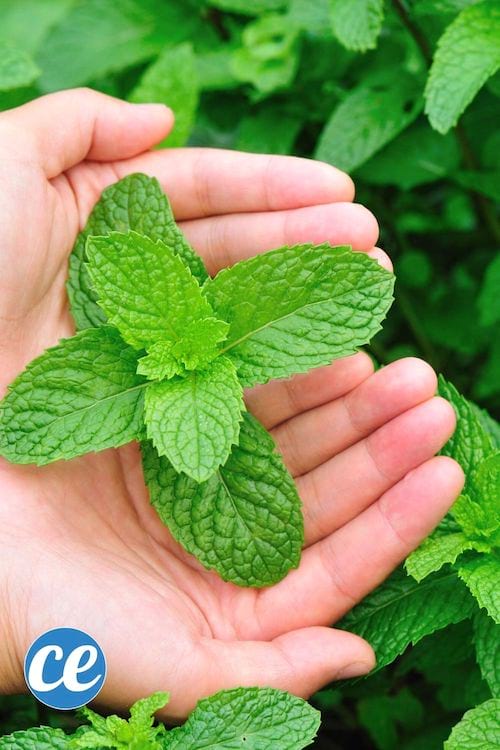
Mint is one of the most beloved and popular herbs among herbal tea lovers.
It is also one of the easiest to grow. An infusion of mint fights digestive disorders, abdominal pain and stomach cramps.
In addition, it stimulates the appetite, reduces gas. Not to mention its very refreshing taste.
Mint is a very resistant plant. It can even get out of hand in the garden if you don't contain it.
It grows in moist soil, in full sun or half shade and half sun.
To discover : The 3 Virtues of Mint You Don't Know About.
4. Lemon balm
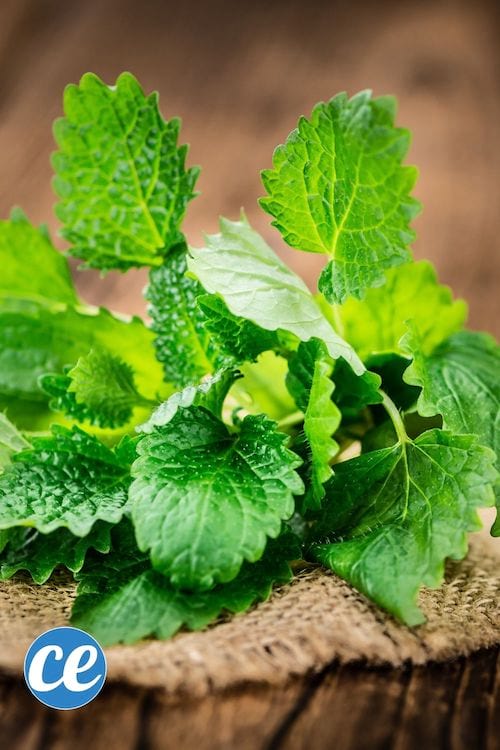
Lemon balm is a mint-like herb. But it does have a distinct lemony flavor.
It gives flavor to herbal teas and ice cream. And it is a fragrant herb useful in cooking.
Lemon balm grows well in dry soil and partially in shade.
If grown outdoors, it dies in winter, but grows back in spring.
Lemon balm is easily spread if grown in garden beds.
It is best grown in a confined space or in a pot.
5. Ginger
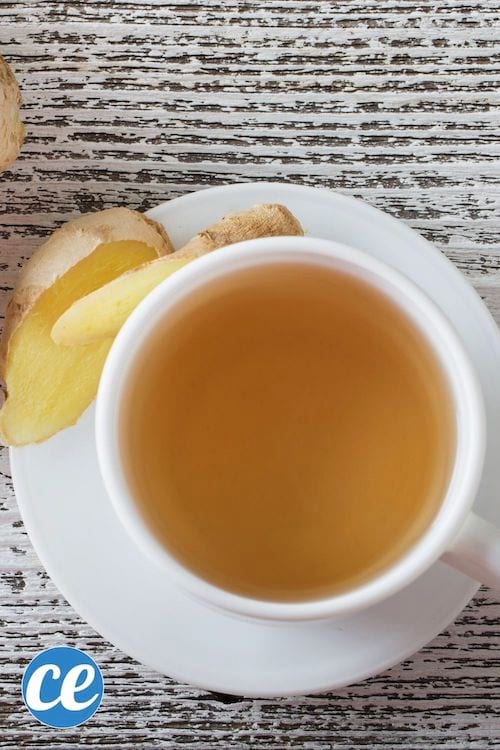
Ginger herbal teas are popular, especially in South and East Asia.
Its roots and leaves can indeed be used to make infusions.
Ancient Chinese and Ayurvedic medicines often use ginger herbal teas for their benefits.
It is an excellent antioxidant and it contains antibacterial properties. It cures illnesses like colds, flu, nausea, and improves digestion and appetite.
Ginger is a really easy plant to grow. No need to worry about it!
Rustic, it appreciates moist soil and filtered sun, in a place with little wind. It grows easily in subtropical and tropical climates.
To discover : How To Grow Unlimited Amounts of Ginger At Home?
6. Thyme
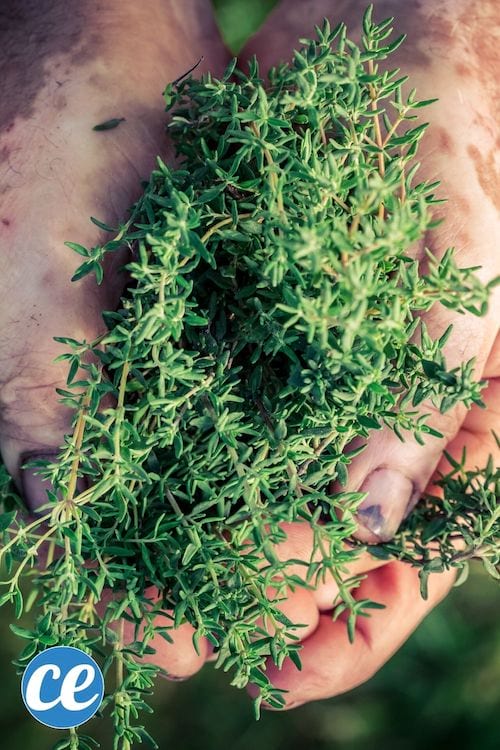
Thyme is a plant with multiple virtues in an infusion.
It calms stomach problems and sore throats.
Use its leaves to prepare your herbal tea and if there are flowers, add them too.
Thyme grows well in full sun, but it also tolerates partial sun.
It is an ideal plant that requires very little maintenance.
7. Chamomile
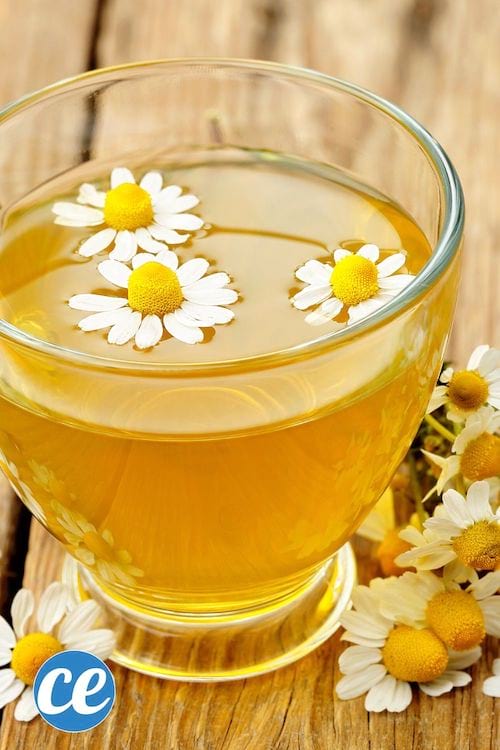
Chamomile looks like a little daisy. Its scent is similar to that of apple. Chamomile is a very useful medicinal infusion.
It is traditionally used to calm and promote sleep. You can prepare this infusion, with the small white and yellow flowers rather than with the leaves.
There are two kinds of chamomile: German and Roman. Roman chamomile gives the herbal tea a more pronounced taste.
Chamomile grows in mountain, oceanic and continental climates. She likes sandy soils. And she needs a lot of sun and water during the summer.
To discover : Relieve Conjunctivitis With Chamomile Infusion.
8. Jasmine

Jasmine flowers are perfect for making herbal tea.
For this, you have to pick some fresh flowers.
Dry them and mix them with green tea. You can also infuse them on their own to make jasmine tea.
Jasmine grows in full sun and needs a trellis or support for climbing. It is not suitable for harsh winter climates.
So if you want to grow it, grow it in a pot that you can take in.
To discover : 6 Plants To Grow In Your Bedroom To Improve Your Health.
9. Stevia
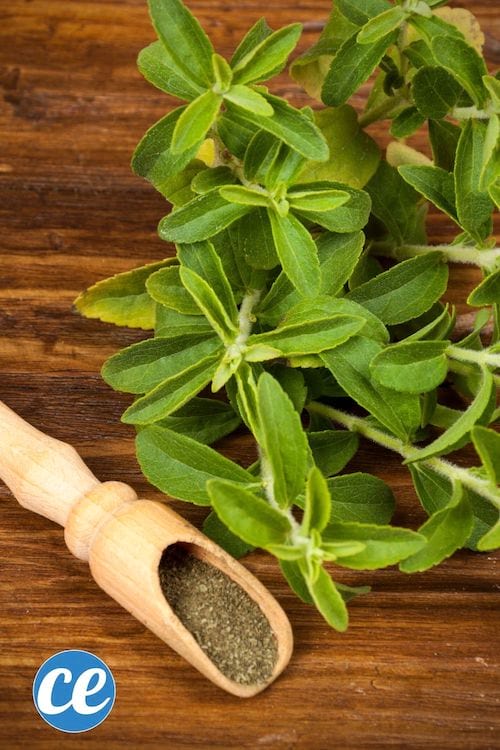
Stevia leaves are sweet and can be infused to make herbal tea.
It's a healthy, natural sweetener, used instead of sugar in an herbal tea. Ideal for diabetics!
Be aware that stevia does not tolerate cold, it prefers hot, dry climates.
Nonetheless, you can grow her in cooler climates in a pot so you can bring her inside when winter comes.
To discover : 3 Substitutes to Replace Sugar and Protect Health.
10. Marjoram
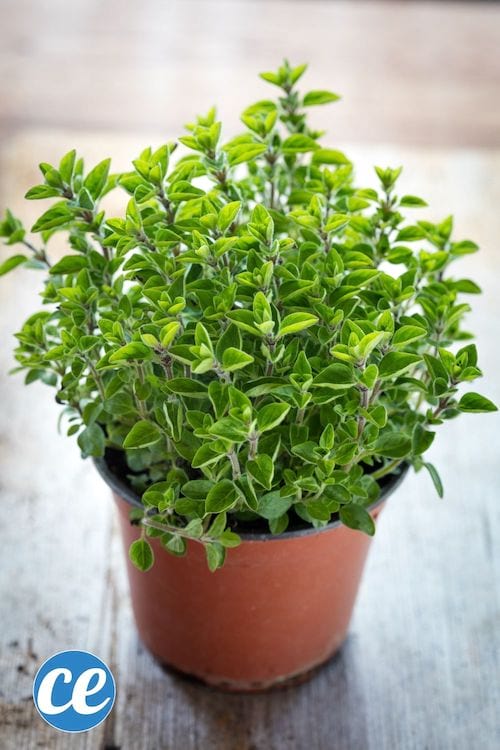
This culinary herb has a fruity and sour flavor with a hint of mint.
Marjoram herbal tea treats various health problems.
These include digestion and stomach problems, such as poor appetite, liver disease, gallstones, intestinal gas, and stomach cramps.
It grows well in full sun, but can tolerate some shade.
Marjoram needs loose, well-drained soil.
11. Coriander
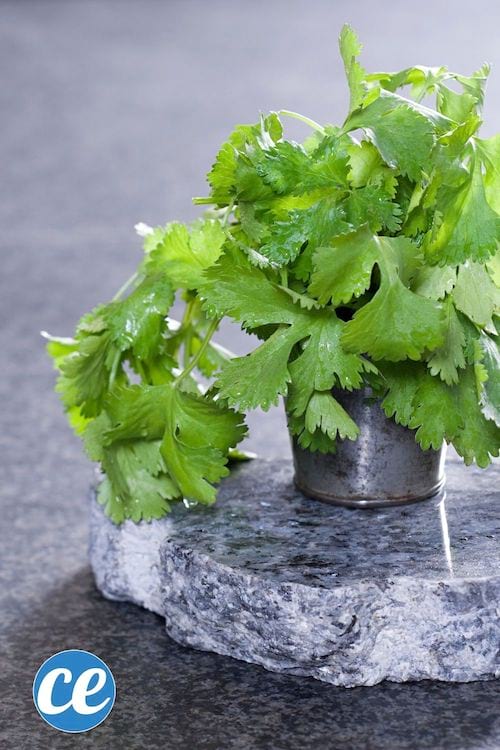
Commonly used for cooking, cilantro is also suitable for making an infusion.
A cilantro herbal tea resembles the aroma of Lady Gray tea.
Mixed with a little honey, it soothes gastric acidity and treats constipation.
It also eliminates toxins from the body and prevents indigestion.
It grows equally well in sun and partial shade and is an ideal pot-grown herb.
Cilantro is an annual herb that grows in almost all climates.
12. Rosemary
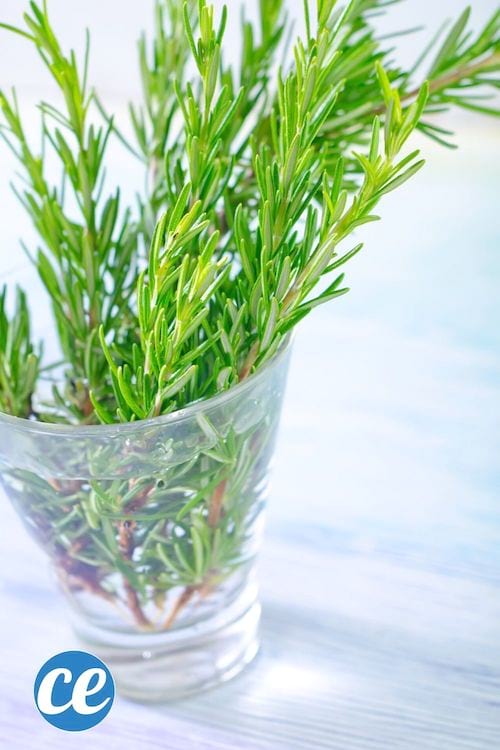
Rosemary tea improves digestion, promotes cognitive function and acts as an antioxidant, protecting the body from heart disease.
Remember, rosemary prefers full sun, light, and well-drained soil.
To discover : According to Study: Smelling Rosemary Increases Memory by 75%.
13. Fennel
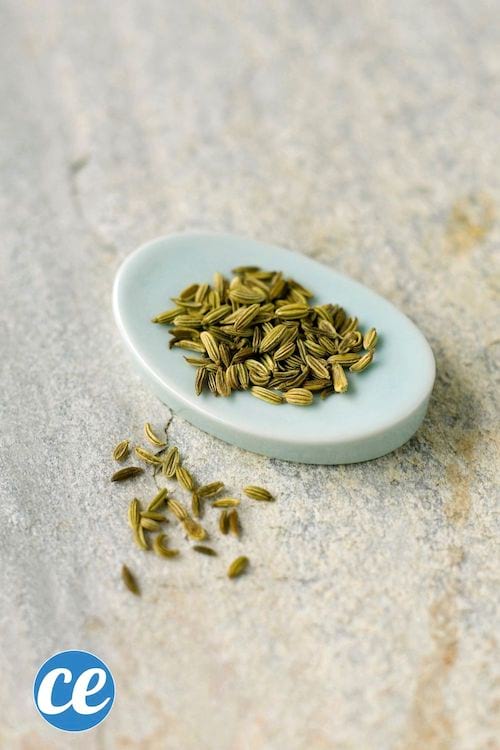
Fennel seeds are perfect for preparing infusions with multiple virtues.
Fennel tea is very beneficial for digestive disorders like irritable bowel syndrome, bloating and gas.
Fennel grows in moist, fertile soil, in full or partial sun.
Mountain, oceanic and Mediterranean climates are well suited to fennel.
14. St. John's Wort
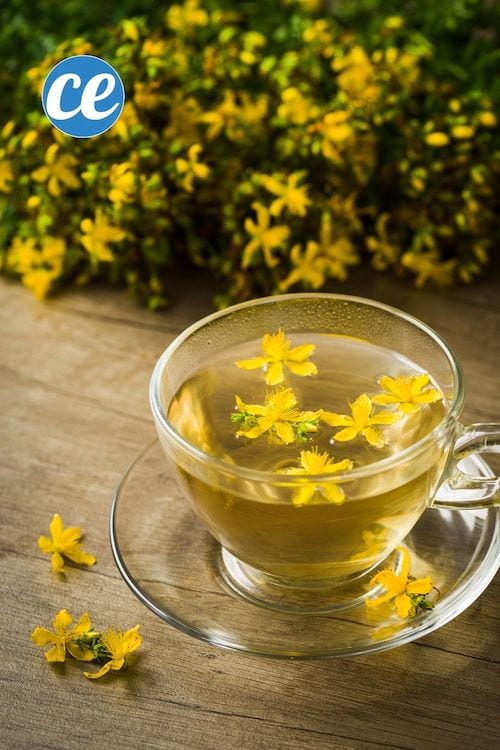
An herbal tea from St. John's Wort is an effective grandmother's remedy for nervous disorders.
If you have problems with insomnia, depression or anxiety, this plant is for you ...
On the other hand, there can be side effects: headaches, mild digestive disorders, dry mouth, interaction with certain drugs ...
15. Sage

The tonic and antiseptic benefits of sage provide an effective remedy for ailments such as canker sores and sore throats.
Sage tea also helps fight depression.
Take 1 tablespoon of fresh sage leaves and 1 tablespoon of dried sage leaves and steep for 3-5 minutes in boiling water.
Filter and mix in honey for taste. Your sage tea is ready.
It can be grown in soil or in pots. If grown in a container, it is important to water the sage regularly.
To discover : Burn Bay Leaves At Home And Watch What Happens After 10 Min.
16. Tricolor viola
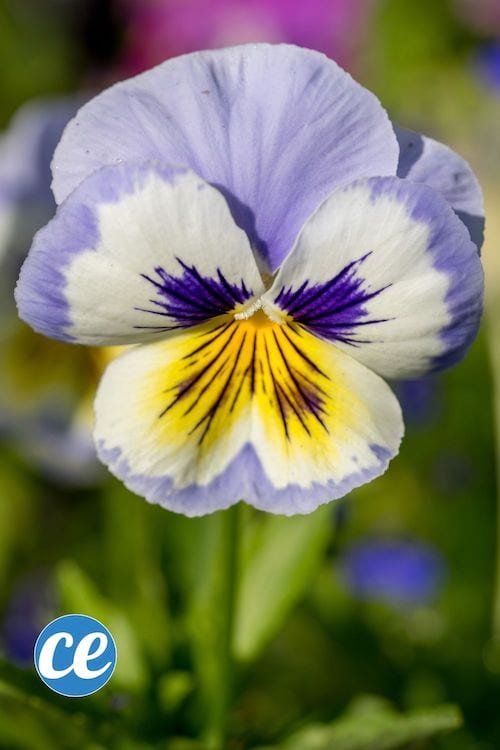
Often called "wild pansy", it is a European flower that grows easily in the wild.
It is a short lived perennial that is known for its medicinal properties.
It contains flavonoids, saponins, anthocyanins, carotenoids which help fight against many diseases, skin diseases, allergies and sore throats.
You can use the whole plant to make herbal tea.
Wild pansy grows in partial shade in slightly acidic to neutral soil.
It thrives in mountain, oceanic and continental climates.
17. Basil
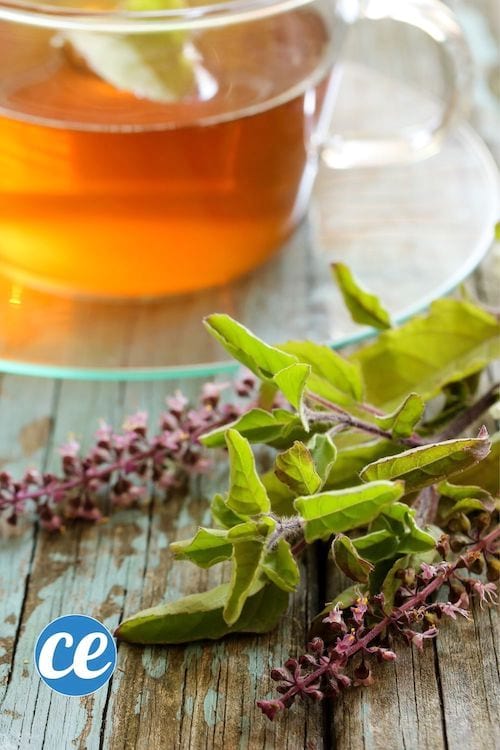
Basil, especially holy basil or "tulsi", is perfect for making herbal tea.
You can also add honey and ginger to it.
Basil is an anti-stress reliever and if used with honey and ginger it helps relieve asthma and coughs, colds and flu.
Consuming basil herbal tea lowers blood sugar levels and helps fight heart disease.
Basil infusion is also a good remedy for mouth problems and bad breath.
Basil likes warm exposures, it is a tropical plant, which grows well in hot climates.
It grows best when the temperature stays around 20 to 30 ° C.
18. Catnip
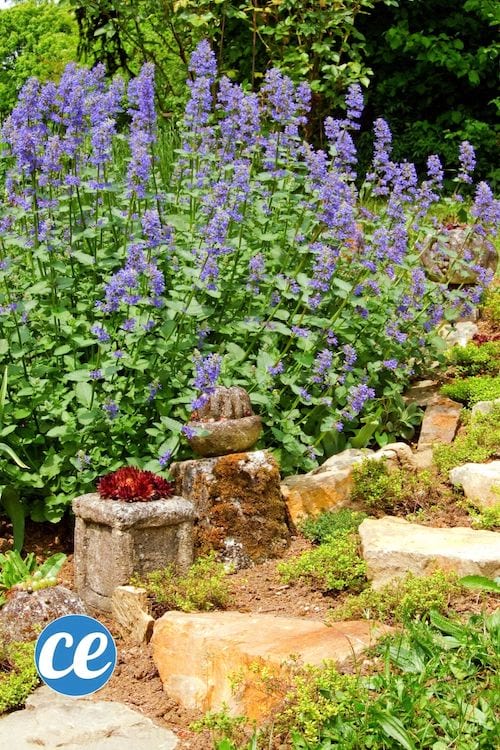
Slightly sedative and calming, catnip (or catnip) is excellent in herbal tea, especially after an exhausting day.
It helps with digestive disorders like diarrhea, relieves headaches and insomnia.
And if you're craving nicotine, it relieves stress.
The leaves and flowers are used to prepare the infusion.
It is easy to grow and grows well in areas with mountainous and oceanic climates.
It prefers well-drained sandy soils, although it adapts to a variety of soil types.
Store your plant in full sun or half shade and sun.
19. Lemongrass
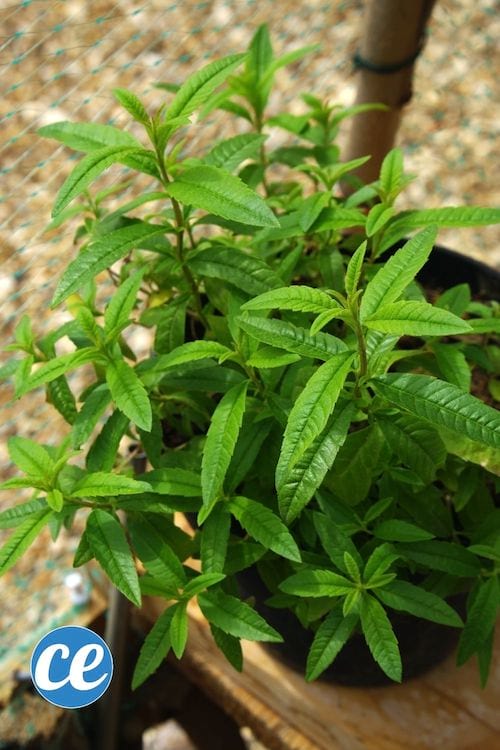
Lemongrass (Cymbopogon citratus) is used in the preparation of herbal teas, soups and other dishes.
This lemon-scented herbal tea also repels pests such as white garden flies.
Grow lemongrass in a warm, sunny place and water regularly.
Lemongrass is hardy in hot and humid areas.
But if you want to grow her in a cooler climate, you can grow her in a pot and take her into the house or put her in a greenhouse in the winter.
To discover : Lemongrass: How To Make It Grow And Enjoy Its Benefits.
20. Monarde
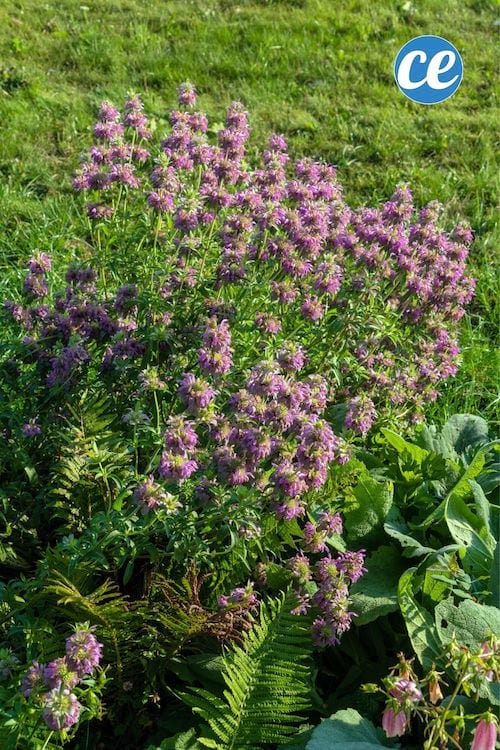
Bee is a pretty, hardy perennial plant, full of bright colors. She is hardy and easy to grow.
Its health benefits are numerous.
It fights colds and flu, and a herbal tea soothes sore throats.
To do this, infuse the leaves to obtain an aromatic and medicinal herbal tea with a taste similar to that of mint, but sweeter.
21. Calendula
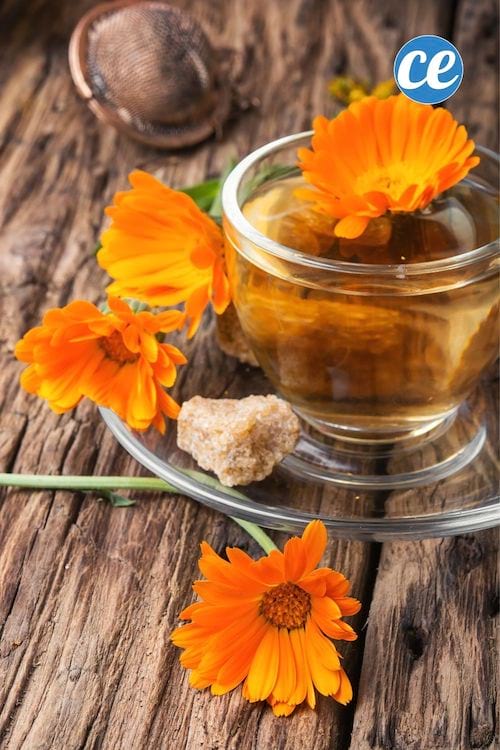
Also called garden marigold, calendula has beautiful orange flowers.
It grows well in Mediterranean areas, but it can also be grown as an annual in cooler areas.
Its health benefits are well established!
Thanks to its natural anti-inflammatory properties of calendula, it is effective in treating a sore throat and it can also help cure urinary tract infections.
22. Dandelion
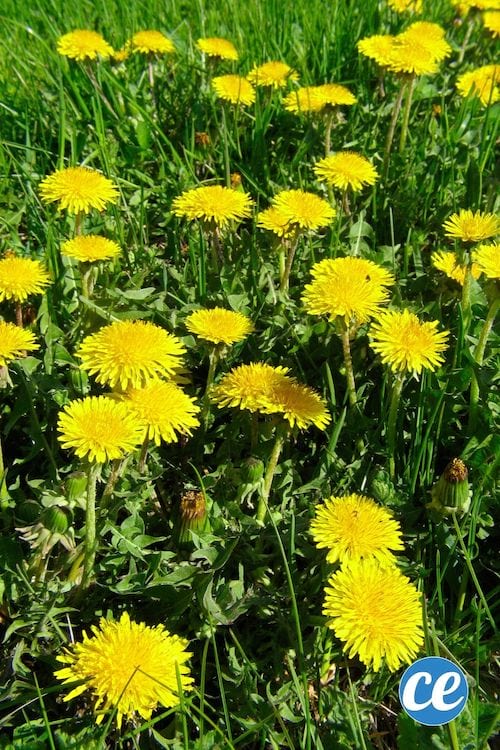
Contrary to popular belief, dandelions aren't just annoying weeds.
Yep, it's actually a nutrient-dense superfood!
They are rich in potassium as well as vitamins A, C and K.
And dandelion tea is often used to help treat digestive issues.
To discover : Can't Eat Dandelions? False ! And It's Very Good For Your Health!
23. Echinacea

Echinacea is a perennial, drought resistant.
She likes rich, well-drained soils and thrives in warm, sunny climates.
Easy to grow, she loves the sun!
It is the plant of immunity par excellence!
Echinacea herbal tea helps boost your immunity and fight colds and the flu.
It has a strong floral taste that can be sweetened with a little stevia honey.
To discover : 9 Health Benefits of Echinacea Nobody Knows About.
24. Hibiscus
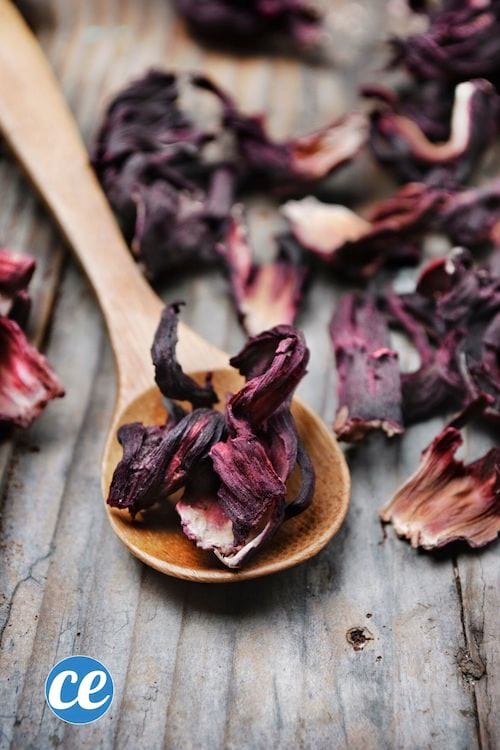
First of all, you need to be sure that the chosen variety of hibiscus is suitable for herbal teas, as some are only ornamental.
The hibiscus thrives in warm climates. In Senegal, an infusion of hibiscus is called bissap.
Hibiscus tea has a fruity and tangy taste.
Hibiscus is rich in vitamin C, aids digestion and may help lower blood pressure.
25. Pineapple sage
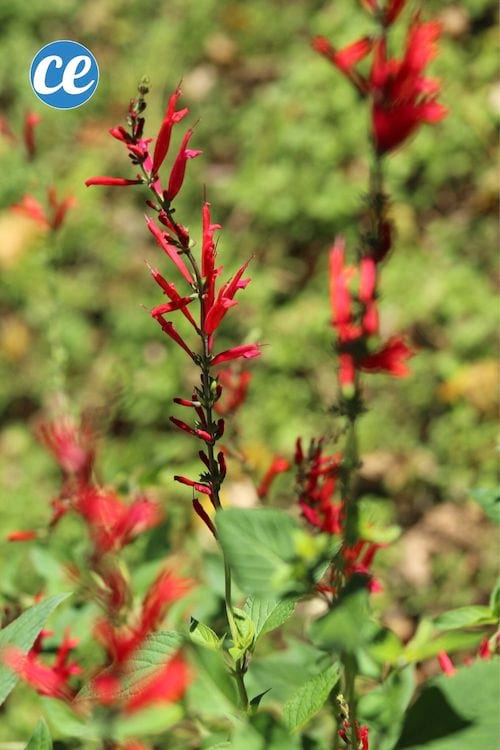
Easy to grow, pineapple sage is a beautiful plant that grows in clumps in Mediterranean areas.
It appreciates the sun and a light, well-drained soil. It supports temperatures down to -7 ° C.
But it can also be grown in pots in cooler regions.
With pineapple sage, we prepare a delicious herbal tea with the sweet taste of pineapple combined with the earthy flavor of sage.
It also contains antioxidants. So it's a little sweet treat that helps you feel good about your body.
26. Rose

You can also use rose petals and rosehips to make herbal tea.
Rose petal herbal tea is full of vitamin C.
It boosts immunity and can help relieve the pain of menstrual cramps.
In addition, it has a beautiful floral flavor.
Rosehip tea has a fruity, tangy flavor and is packed with nutrients such as vitamin C, calcium, and zinc.
To discover : My Homemade Rose Water Recipe in 20 minutes!
Additional advice
- Whether you have a small space, a terrace, a balcony or a large garden, you can always find a small place to grow your plants for herbal teas and infusions.
- There are several herbs and flowers that are suitable for preparing herbal teas. Your choice depends on which flavors you like the most. You also have to consider the climate to know what will grow best and the space you have.
- You can use these plants fresh or air dry them and store them to make healthy and aromatic herbal teas.
- Do not pick too many leaves at once, you risk killing your plant. If there is a herbal tea that you particularly like, grow several plants of that herbal tea rather than plucking lots of leaves each time from the same plant.
- Do not use chemical pesticides or insect repellents on your herbal tea plants.
- Do you have a small garden? No problem ! Plant your tea herbs in pots! It doesn't take up space and you can grow them on your patio or balcony.
- No garden space outside? Plant indoors! You can create a vertical herb garden and harvest your plants to make herbal teas year round.
Your turn...
Have you tried growing plants to make your own herbal teas? Tell us in the comments if it worked for you.We can't wait to hear from you!
Do you like this trick ? Share it with your friends on Facebook.
Also to discover:
What Kind of Herbal Tea to Drink Based on Your Symptom.
The Ginger Detox Herbal Tea Recipe To Purify Yourself.



